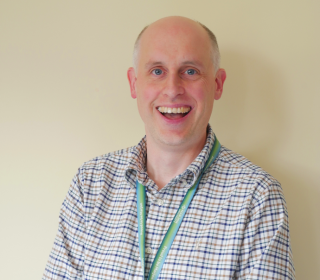Interested in this course? Book now for Open Day to find about more
FdSc Assistant Practitioner
Train to work closely with patients alongside qualified healthcare professionals.


Specialist pathways
Study a programme that has been written in partnership with professionals to offer specialist pathways aligned to registered professions and employment.

Apply now for this course

Get our health course news
Entry requirements
Three A-levels at grades DDD or above
BTEC National Diploma or QCF Extended Diploma.
T level P (C+ in core elements)
GCSE Maths and English (or equivalent) grade C/4.
Equivalent qualifications may be considered, including workplace delivered NVQs.
DBS check and occupational health check.
UCAS points 72 – 120
UCAS code FAP1
UCAS institution code P63
Duration 2 years full time.
Any questions?
Contact Tara Godber, our Applicant Support Coordinator, if you have any questions. Email applicantsupport@marjon.ac.uk and Tara will get back to you.
Course Summary
Assistant Practitioners work alongside registered health professionals using their skills and experience in a particular area of clinical practice.
They work in almost any area of the NHS, and have direct contact with patients, service users or clients providing high quality, focused and compassionate care. As part of the programme, you can choose specialist pathways aligned to roles across the health and care sector. The programmes offers an inter-professional learning experience, meaning you will learn from and across different professional roles giving you a holistic view of the patient experience.
Why this course at Marjon?
Key focus on Practice Learning which reflects the required skills of an Assistant Practitioner within their specialist setting.
The programme reflects a range of specialist health and social care roles, designed in partnership with local employers and will reflect the multidisciplinary nature of today’s healthcare system.
Assessments across the programme reflect the skills aligned to specific roles and employment opportunities.
Diverse teaching team with multiple clinical backgrounds bringing real-life experience to teaching.
Modules for this course
Modules
1st Year
Foundations of Professional Practice
Introduction to Clinical Skills
Anatomy and Physiology
Clinical Practice 1
Mental Health & Wellbeing
Communication and Working in Teams
2nd Year
Research in Evidence Based Practice
Leading and Integrating Care
Pathophysiology for Healthcare
Clinical Practice 2
Optional module 1
Optional module 2
This course is perfect if you’re curious about
Having an occupational specific role that has been developed to assist organisations to deliver high quality, patient-centred care in a specialist setting.
Those searching for a non-traditional career pathway to a route to registered professional roles such as a nurse, physiotherapist, or healthcare science practitioner.
How to deliver and manage planned care.
“ The course is intended to prepare students to become independent practitioners specialising in their specialist chosen pathway. The programme has been designed in collaboration with employers and service users, combining study that is university-based alongside learning in the workplace. Work-based learning is adopted throughout the programme to ensure that a seamless connection is made by the students about how new knowledge attained from the programme can be utilised into their practice.”
What might you become?
On successful completion, graduates are eligible to apply for roles as an Assistant Practitioner (NHS Band 4). You could work in hospitals, clinics or in the community such as in GP surgeries, or visiting patients in their home. You may also choose to progress to a full degree in Nursing or other Allied Health Professions.
How you’ll be taught and assessed?
How will you be taught?
Students will be taught for 15 hours per week, 1 day per week on campus in lectures, seminars and clinical skills workshops and simulations, and 1 day through guided virtual activity. Students will spend the remaining 22 hours/3 days in clinical practice.
How will you be assessed?
Assessment is planned across the programme, with a specific emphasis on learning and assessment in authentic practice learning environments, enabling trainee assistant practitioners to develop the skills needed for future employment as a Assistant Practitioner and the academic skills of higher education
Fees and funding
Fees UK students: £9,250 per annum for FdSc or £12,000 for Higher Level Apprenticeship
Fees for International students: £12,500 per annum
This fee covers your tuition and access to course-specific equipment and facilities, as well as associated services including access to the library, study skills support, IT support, student support and wellbeing services and membership of the Student Union. There may be additional costs by course. For larger employers, apprenticeship levy funding can fully meet the costs of training, assessment and certification. Employers themselves pay the apprentice's wages. For smaller employers, funding may be available to support fees, please check with us for further details. Disclosure and Barring Service (DBS) enhanced check (Annual Update Service or dated within 6 months of the start of the course) Evidence that an occupational health declaration has been completed prior to starting the programme. Evidence of all required vaccinations being up-to-date
Funding available for this course
Our Student Funding Advisors offer confidential and impartial advice about your funding options.
Learn moreFrequently asked questions
Q1 Will I be a registered health professional on completion of the programme?
Q2 How will I be different to a Nursing Associate?
Q3 Can Assistant Practitioners administer medication?
Q4 Can I continue my studies to become a registered nurse or allied health professional on completion of this programme?
Q5 Do I have to undertake a placement on this programme?
Q6 Will I be able to arrange my own placement?
More information
From 1 April 2022, COVID-19 vaccination will be a condition of deployment for all frontline health and social care workers. All students on this course will be required to show evidence of being vaccinated or have an NHS COVID-19 Pass confirming that they are medically exempt before being allocated clinical placements. Clinical placements make up 50% of the course requirements and vaccination is already a requirement in social care settings. When applying for this course please be aware that if you are not vaccinated against COVID-19 or don't have an NHS COVID-19 Pass confirming a medical exemption you may not be able to complete the course or we may be unable to accept your application for enrolment. Specialist modules include Community and District Nursing, Public Health Nursing, Mental Health, Physiotherapy, Integrated Therapies, Speech and Language Therapy, Occupational Health.
Apply now for this course
Find out more about studying Assistant Practitioner at Marjon

Discover Uni collects data about university courses in the UK. All universities publish Discover Uni data on their online course pages enabling you to compare similar courses at different universities.



